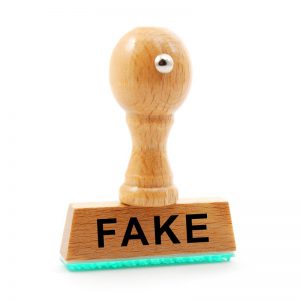 Do Candidates Ever Fake McQuaig Word Survey® Responses?
Do Candidates Ever Fake McQuaig Word Survey® Responses?
A question that sometimes comes up in our certification seminars is ‘do candidates ever “fake” their responses and how successful are they?’
The recruitment process is, from the perspective of the candidate, a selling process. As such, we fully expect some embellishment on their part. Candidates embellish their resumes, they embellish their success stories in interviews and they typically only volunteer references that will provide positive information, so it seems natural that they would embellish their responses in a pre-employment assessment.
However, embellishing The McQuaig Word Survey® responses is more difficult for a several reasons:
- Ipsative vs. Normative testing.
- Contradictory or inconsistent answers.
- Real vs. Situational.
- Time to complete assessment.
- Predictive validity study.
- The McQuaig Word Survey® is just one tool in the System.
Ipsative vs. Normative.
The McQuaig Word Survey® is an Ipsative, or “forced choice” assessment where candidates are given four words or phrases to rank as to what most-to-least resonates.
Conversely, Normative assessments present a phrase such as “How competitive are you?” and ask candidates to rate themselves on a Likert-type scale, typically 1-5.
A large-scale study presented in the International Journal of Organizational Analysis concluded Ipsative assessments were “more effective in guarding against faking than more commonly used normative measures.”
Contradictory or inconsistent answers.
The McQuaig Word Survey® states if candidates are behaving in a contradictory or inconsistent manner. This situation is referred to as Transition. Another way of looking at this is that the candidate has answered the questions in an inconsistent way.
In either case, we suggest further probing using the questions provided in the Word Survey to uncover what is really going on.
Real vs. Situational.
A significant difference between the Real and Situational side of the graph usually occurs when an individual is currently behaving in a way that is inconsistent with their natural behaviour patterns. We know that this is caused when they answer the questions in the first part of The McQuaig Word Survey® differently from the way they answer the questions in the second part.
In the vast majority of cases, these changes are there because the individual has to adapt their natural behaviour to the differing demands of the job – and our research backs that up – but attempting to skew results cannot be ruled out in this situation. In either case, we recommend that you probe further using the questions provided in The McQuaig Word Survey®.
Time to complete assessment.
When you receive your candidates’ results, you are also provided with how long it took them to complete the assessment, and how many attempts they made.
Typically candidates take between 15-20 minutes.
Psychologists assert that the faster an assessment is completed (within reason) the more accurate the results. Therefore, if a candidate took an inordinate length of time, or many attempts to complete the Survey, be sure to ask why this occurred.
Predictive Validity Study.
A Predictive Validity Study compares a group of candidates’ McQuaig Word Survey® results and/or Job Fit Match recommendations at the time of hire to their performance later on.
The results can be used to assess the validity of The McQuaig Word Survey® and modify The McQuaig Job Survey® profiles for future candidates. It eliminates the influence of faking since you are building a ‘Job profile’ based purely on candidate data and one candidate group for the same role is typically as likely to fake results as another.
McQuaig Psychometric System is just one tool in the recruitment toolbox.
The McQuaig Psychometric System should only be considered one piece of the puzzle during the hiring process.
Using McQuaig along with behaviour-based interviewing, work samples, and reference checks will ensure you evaluate your candidate as thoroughly as possible, and catch any potential attempt to fake along the way.
While every candidate will embellish himself or herself during the recruitment process we are comfortable that attempts to fake The McQuaig Word Survey® are the exception not the rule, based on decades of customer feedback.
Employing best practices when using The McQuaig Psychometric System will reduce the likelihood of faking and enhance the objectivity of your selection process.
 About the Author: Michael Gravelle is a consultant for The McQuaig Institute. In addition to being featured in The Globe & Mail and Profit Magazine, he has written numerous articles on selection and assessment for such publications as The HR Professional, The Canadian Retailer and The HR Reporter.
About the Author: Michael Gravelle is a consultant for The McQuaig Institute. In addition to being featured in The Globe & Mail and Profit Magazine, he has written numerous articles on selection and assessment for such publications as The HR Professional, The Canadian Retailer and The HR Reporter.
For more information on the McQuaig Psychometric System visit https://mcquaig.co.uk/psychometric-system/, email hello@weareholst.com or call 0203 111 9292.











